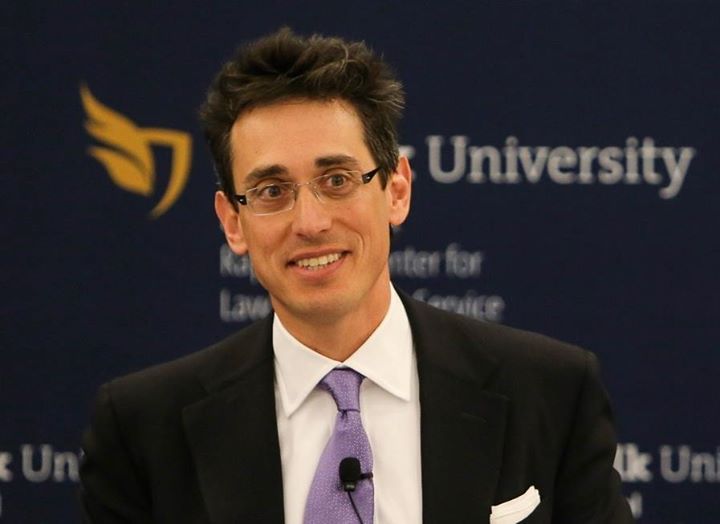
Evan Falchuk is not going to be elected Governor in November. But that was never his goal and not a sufficient reason to ignore him or disinvite him from televised political forums.
Falchuk is hoping to galvanize just enough voters to give his political designation official party status. He’s thinking long term. But for reasons cultural and institutional, that is going to be difficult. It’s made more difficult when he and other candidates are kept out of forums during the last month of the campaign.
Keeping candidates who languish in the polls out of forums makes sense, many will argue, because they don’t have a chance of winning and it takes attention away from those who do. This is not an unreasonable claim. In our crowded public space, the more attention that we can devote to the policy preferences of those with a real shot of winning, the better off we will be.
But political parties as collective organizations are also important to the future of our democracy and we should not so easily dismiss those looking to shake up the system with a third party.
Institutionally, it is difficult for third parties to gain a foothold here. Our system of first past the post, winner take all elections creates all the right conditions for a dominant two party system to turn back any serious challenge.
Currently, state law differentiates between “designation” and “party.” Falchuk’s organization, the United Independence Party is listed with a number of others (Green Party, Libertarian Party, Rainbow Coalition) as a designation.
A designation is a legal entity that voters can list when the register to vote. It is not a political party that can hold primary elections or elect a state committee. Massachusetts General Laws allows for any 50 registered voters to petition the Secretary of the Commonwealth’s office, “requesting that such voters, and any others wishing to do so, may change their registration to such designation, provided however, that the designation “Independent” shall not be used. “
There are two ways for a political designation to become a political party, according to state law: garner 3% of the vote for any statewide office or have a “number of voters with its political designation equal to or greater than one percent of the entire number of voters registered in the commonwealth.”
Falchuk and UIP have chosen the former and they appear to be in striking distance, which means the visibility of high profile forums over the next month is of even greater importance. Getting to 3% is the first stop in creating a real third party as an alternative.
The second reason UIP faces a tough slog is our political culture: we don’t have one that embraces third parties.
This is a state that gave William Howard Taft a second place showing during the greatest third party insurgency of the twentieth century, the Bull Moose progressive campaign of 1912.
Third parties or independent candidates have had no luck since then. Unlike other New England states which have flirted with independent or third parties, we’ve remained staunchly attached to our main parties.
Recent attempts to shake up the system have largely fizzled.
Tim Cahill took only 8% in 2010, Christy Mihos took just under 7% in 2006 and Jill Stein of the Green Party just over 3% in 2002.
None of those efforts resulted in an energized third party running and winning at multiple levels.
So it is easy to sympathize with those who exclude Falchuk and the other independent candidates, Jeff McCormick and Scott Lively.
The next Governor will be either Charlie Baker or Martha Coakley. It makes good rational sense to allow voters to fully digest their candidacies and policies.
But in an age when voters continue to turn away from the two main parties—as measured only by party registration—and clearly choose not to participate in their affairs—as measured by turnout in the recent primary—doesn’t it make good democratic sense to allow a new party an opportunity? Citizens may have different answers to that question but they won’t be able to formulate the answer if they don’t know that Falchuk is offering them a third way.
And for all of the talk about his lack of standing in the polls, the reality is that this is when most people are paying attention to the election. If he’s going to get over the 3% hurdle, this is the time. Denying him airtime now unnecessarily raises that hurdle.
Parties are the incubators of democracy. Professor Cunningham and I have taken to defending them and their rules as important bulwarks of democratic life. Active parties can lead to an active citizenry and it is possible that UIP can draw more citizens into our politics.
If they don’t get their 3%, we won’t ever know. State law allows for new parties if they achieve 3% of the statewide vote. Falchuk has set this as a reasonable goal. Taking a good, long term view of the state of our democracy in Massachusetts should compel those ignoring him or disinviting him to rethink their approach.

